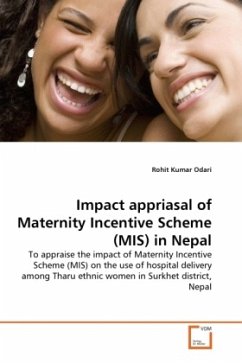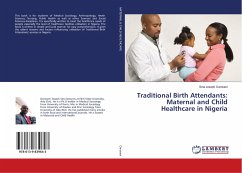Every year, 4500 women die of pregnancy related complications in Nepal that means 12 women die per day or one every two hours. Nepal demographic and health survey 2002 estimates 539 women per 100,000 live births die as a result of complications related to pregnancy, childbirth and post natal period. Majority of women give birth at home and only 11% births are attended by skilled birth attendants (in 2001) in Nepal. Therfore,this study is carried out to appraise the impact of Maternity Incentive Scheme (MIS) on the use of hospital delivery among Tharu ethnic women in Surkhet valley of Nepal. The Tharu ethnic group is socially and economically one of the most excluded and disadvantaged communities of Nepal. The study concludes that MIS has made positive changes on the use of hospital delivery and contributed to reduce the maternal mortality however the better off and mothers residing in urban area have chiefly benefited. The mothers of ultra poor, remoter, excluded and ethnic groups are less benefited despite the inclusive approach of the scheme.
Bitte wählen Sie Ihr Anliegen aus.
Rechnungen
Retourenschein anfordern
Bestellstatus
Storno








